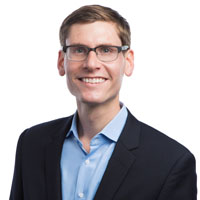Postal Banking
The U.S. Postal Service’s Inspector General issued a request for proposals this week to solicit strategies from stakeholders on expanding financial services at the post office. Mark Holan with the Washington Business Journal gave the broader context for this announcement in USPS’s recent developments in this area and suggested that the RFP represents “the next step” towards rolling out postal banking. Separately this week, the Washington Post editorial board opined on the political and policy steps that need to be taken in order to ensure “a solvent Postal Service.” While postal banking was not in their recommendations, Dean Baker with the Center for Economic and Policy Research explicitly suggested expanded financial services as one way to improve the Postal Service’s financial condition. Kevin Drum, however, remains skeptical. His main critique: “If the government wants to provide basic banking services for the poor, it's not clear to me why USPS should do it…If we really want some kind of government-sponsored basic banking service, we should simply create one and partner with commercial banks to offer it.”
Savings
“The share of the U.S. population 25 and older with a savings or checking account was 91 percent in 2011, lower than any other Group of Seven nation except Italy.” That’s according to Jeanna Smialek for Bloomberg News this week reporting on the latest available World Bank data. That should come as no surprise to those who have watched these trends closely: less than 70 percent of Americans have a savings account, according to the Federal Deposit Insurance Corporation.
Millennials have a negative saving rate, according to new analysis by Moody’s Analytics. Slate’s Jordan Weissmann takes aim at a Wall Street Journal report on the data, arguing: “So the problem for millennials doesn't appear to be that we're frightened of JPMorgan or comfortable putting away an unusually small share of our income. It's that we've gotten a start in life at an inopportune moment in history, and probably have lower salaries and higher education debt to show for it. We're not bad savers by American standards. But American standards might not be good enough, at least if any of us ever want to retire.”
Ben Walsh recently reported on a new paper by the Center for Economic and Policy Research’s David Rosnick and Dean Baker that found, according to Walsh, “Americans are not remotely financially ready for retirement.” One indication of this lack of financial preparedness is the propensity of Americans to underestimate how long they will live, and thus to underestimate the amount of savings they really will need to live in retirement. Josh Zumbrun for The Wall Street Journal summarized the findings of a new Brookings paper on the topic of longevity annuities, which also was the topic of discussion for a panel event there last week.
According to a recent HelloWallet report, saving for retirement in a diversified mutual fund may be a better long-term investment for most Americans than buying a home. The report, by Aron Szapiro, weighs the pros and cons of homeownership and provides a nuanced perspective on the value that middle-income Americans can receive from pursuing this asset-building vehicle. Michael A. Fletcher reported on the findings for the Washington Post.
The Consumer Financial Protection Bureau proposed new rules to regulate the marketplace for prepaid cards. The proposed regulations would create uniform consumer protections including easy and free access to account information, error resolution rights, and lost/stolen card protection. Susan Weinstock from Pew’s consumer banking project says the rules are good first step, but don’t go far enough to promote full fee disclosure and that FDIC backing should be mandatory for all prepaid cards. Dory Rand from the Woodstock Institute echoes those comments, but goes further to say that allowing a connection between prepaid cards and credit products (as the rules would do) is a mistake that may harm consumers.
Work
The unemployment situation looks a little better recently with unemployment down to 5.8 percent. But as Lauren Lyster with MoneyWatch has reported, wage growth “continues to disappoint.” Scott Tong asked late last week for Marketplace, “Who shares the growing productivity pie?”
An innovative approach to solving work and family issues is the “two-generation approach,” which has been spearheaded lately by the Annie E. Casey Foundation, which this week released a Kids Count report using this framework. Kayleigh Skinner for the Hechinger Report reflected on the report’s implications for poor families in Mississippi. Ebone Williams for New America’s EdCentral reflected last week on the top-line goals for the two-generation approach to “break the cycle of poverty.”
Quick Hits
This week, New America and the Asset Building Program released a new resource site presenting research on the policy issues facing young people today. Many of the resources arise out of a policy symposium we hosted last month called “Millennials Rising.”
The Asset Building Program is hosting an event next week on the structural inefficiencies of America’s safety net that leads to trapping people in poverty. The event, “Trapped in America’s Safety Net: Choosing to Make People Poor” to be held on Wednesday at noon, will feature the author of a new book on the subject, Andrea Louise Campbell, along with Michael Morris of the National Disability Institute and our own Rachel Black, with NPR’s Pam Fessler serving as moderator.
Also next week, we will cohost a webinar with the Assets and Education Initiative at the University of Kansas to discuss lessons to be learned from Canada’s system for promoting college savings. The webinar, titled “If You Build It, Will They Save?: Lessons from the Canadian Education Savings Program,” will be held at 2:00pm EST on Tuesday.
